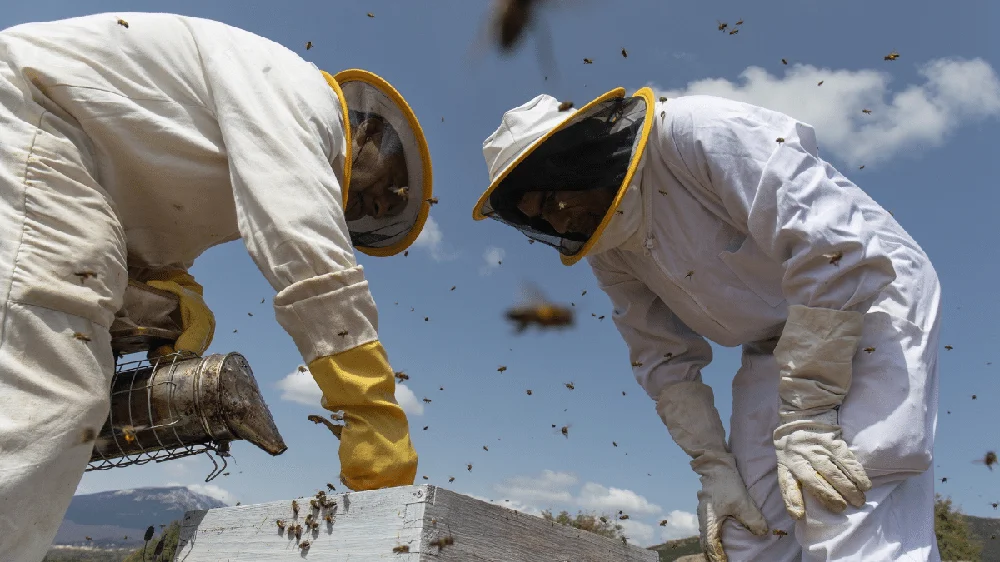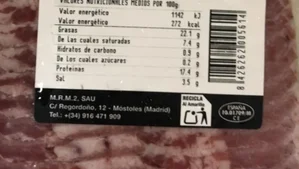Expats in Spain Alert: Majority of Store-Bought Honey Found to Be Fraudulently Labeled

In a shocking revelation that has sent ripples through the food industry, a recent investigation has uncovered that a staggering six out of every seven store-bought honeys in Spain are fraudulently labeled. This alarming finding has significant implications for consumers, particularly expats living in Spain who rely on these products for their daily needs.
The Extent of the Fraud
The investigation, which analyzed a substantial number of honey samples from various supermarkets and retail chains, revealed that an overwhelming 85% of import companies had at least one positive result for fraudulent products. This translates to a staggering 51% of honey imports being fraudulent, according to data from the European Commission's joint report by OLAF, JRC, and DG SANTE published in 2023[3].
Beekeepers' Protest and Demands
Faced with this avalanche of fake honey, European beekeepers, including those from Spain, France, and Portugal, have taken to the streets to protest. On January 28, 2025, beekeepers from the beekeeping sector of COAG, a member organization of the European Coordination Via Campesina (ECVC), gathered in front of the EU headquarters in Madrid. Under the slogan "European beekeepers against fraud. Manufactured syrups are not honey," they demanded immediate action from the EU and national governments to reinforce border controls, validate analysis methods, and ban ultra-filtration practices that facilitate the adulteration of honey[1].
New Regulations to Combat Fraud
In an effort to address these concerns, the Spanish government has recently approved new regulations aimed at ensuring the quality of honey sold in the country. A Royal Decree amending the quality standard for honey now mandates that when a honey product is a blend, it must indicate the percentage of contribution from each country of origin in the main visual field of the label. This move is designed to protect and increase the competitiveness of Spanish honey and provide consumers with clearer and more accurate information about the products they purchase[3].
Impact on Consumers and Beekeepers
The presence of fraudulent honey on the market not only deceives consumers but also severely impacts professional beekeepers. The influx of cheap, adulterated honey artificially lowers market prices, making it difficult for genuine beekeepers to sustain their businesses. Pedro Loscertales, responsible for the beekeeping sector of COAG, emphasized that this issue is not just about the future of a professional sector but also about the broader implications for pollination, food security, and biodiversity[1].
International Context
The issue of fraudulent honey is not isolated to Spain but is a broader European problem. The EU-Mercosur agreement, which allows for the import of 45,000 tonnes of duty-free honey from Mercosur countries, is expected to further exacerbate the situation. European beekeepers are strongly opposed to this agreement, fearing it will lead to more dumping of cheap, potentially adulterated honey into the European market[1].
As expats in Spain, it is crucial to be aware of these developments and to support local, genuine beekeepers to ensure the quality and authenticity of the honey you consume. With the new regulations in place, consumers can look forward to more transparent labeling and a higher standard of quality in the honey products available in the market.
Related Stories

Beware of Apple ID Scams as Black Friday and Christmas Approach
As Black Friday and Christmas near, Apple ID users are warned of sophisticated phishing scams. Learn how to protect yourself from urgent "account suspension" alerts.

Alert Issued for Listeria Monocytogenes in Various Spanish Meat Products
Spain's AESAAN issues urgent alert for Listeria in meats, urging consumers to check labels and avoid affected products to prevent health risks.

Staying Safe on Cyber Monday: Tips for Expats in Spain to Avoid Online Scams
Expats in Spain are urged to stay vigilant against online scams this Cyber Monday, with tips on avoiding phishing, fake sites, and ensuring safe shopping.

Three Decades of Child Protection: ANAR Foundation's Comprehensive Report
ANAR Foundation's report reveals three decades of child protection efforts in Spain, highlighting increased helpline calls and the need for digital expansion.

Alert Expanded for Listeria Monocytogenes in Meat Products in Spain
Spain's AESAN expands alert on Listeria in meat, urging rigorous safety measures amid rising listeriosis cases in Europe.